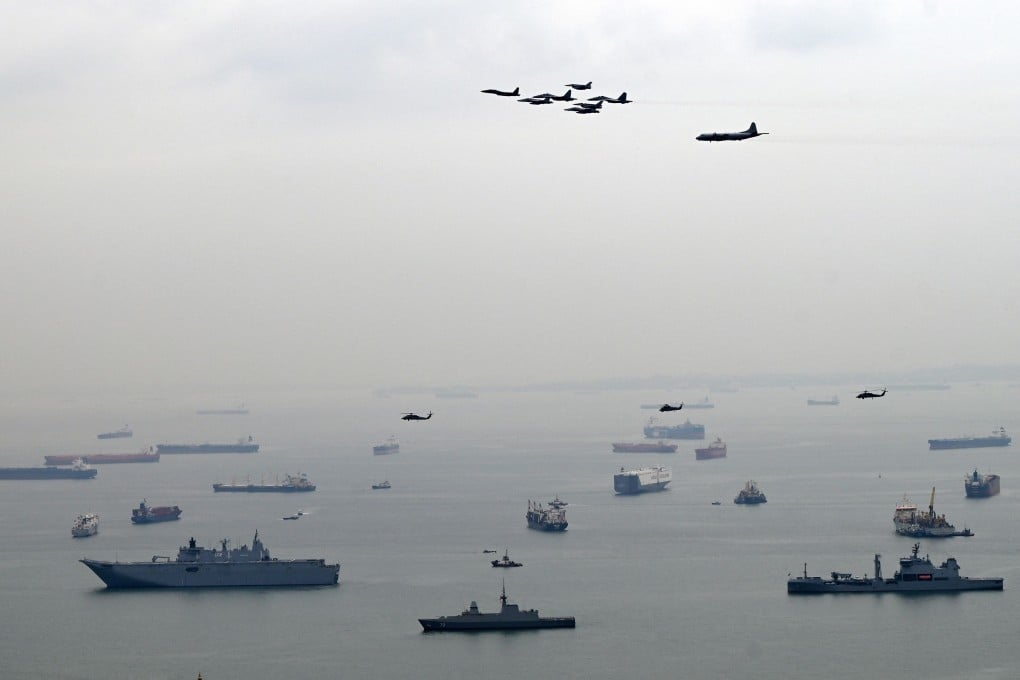Advertisement
Asia’s oldest defence pact, the FPDA, is a ‘stabiliser for region’, says Singapore defence minister
- Forces from Britain, Malaysia, Singapore, Australia and New Zealand took part in a two-week exercise involving 2,600 personnel, maritime patrol aircraft and fighter jets
- The Five Power Defence Arrangements pact is marking its golden jubilee. It is still relevant in a ‘different world’, says Singapore’s PM Lee Hsien Loong
Reading Time:3 minutes
Why you can trust SCMP
10

The Five Power Defence Arrangements (FPDA), Asia’s oldest non-binding military pact, on Monday marked its 50th anniversary with an aerial and naval display that one analyst said underscored the countries’ commitment to continued cooperation.
The FPDA was formed in 1971, following the British withdrawal east of the Suez Canal, with an objective of protecting former colonies Malaysia and Singapore from external threats amid aggression from neighbouring Indonesia and turmoil elsewhere in the region.
Along with Britain, the FPDA groups the two Southeast Asian neighbours with Australia and New Zealand, and these countries are obliged to consult one another in the event of armed threats or attacks on Malaysia and Singapore.
Advertisement
Monday’s display in and over Singapore’s Marina South district capped the two-week “Bersama Gold 2021” exercise that involved 2,600 personnel, ships, maritime patrol aircraft and fighter jets.
The display, live streamed on the Singaporean defence ministry’s Facebook page, featured the city state’s F15 and F16 fighter jets, Malaysia’s Sukhoi Su-30MKM jets and Australia’s F/A 18 Hornets in an aerial fly-past.
New Zealand’s HMNZS Aotearoa, Australia’s HMAS Canberra, Singapore’s RSS Steadfast and Malaysia’s KD Lekiu took part in the naval display.
Advertisement
Select Voice
Choose your listening speed
Get through articles 2x faster
1.25x
250 WPM
Slow
Average
Fast
1.25x